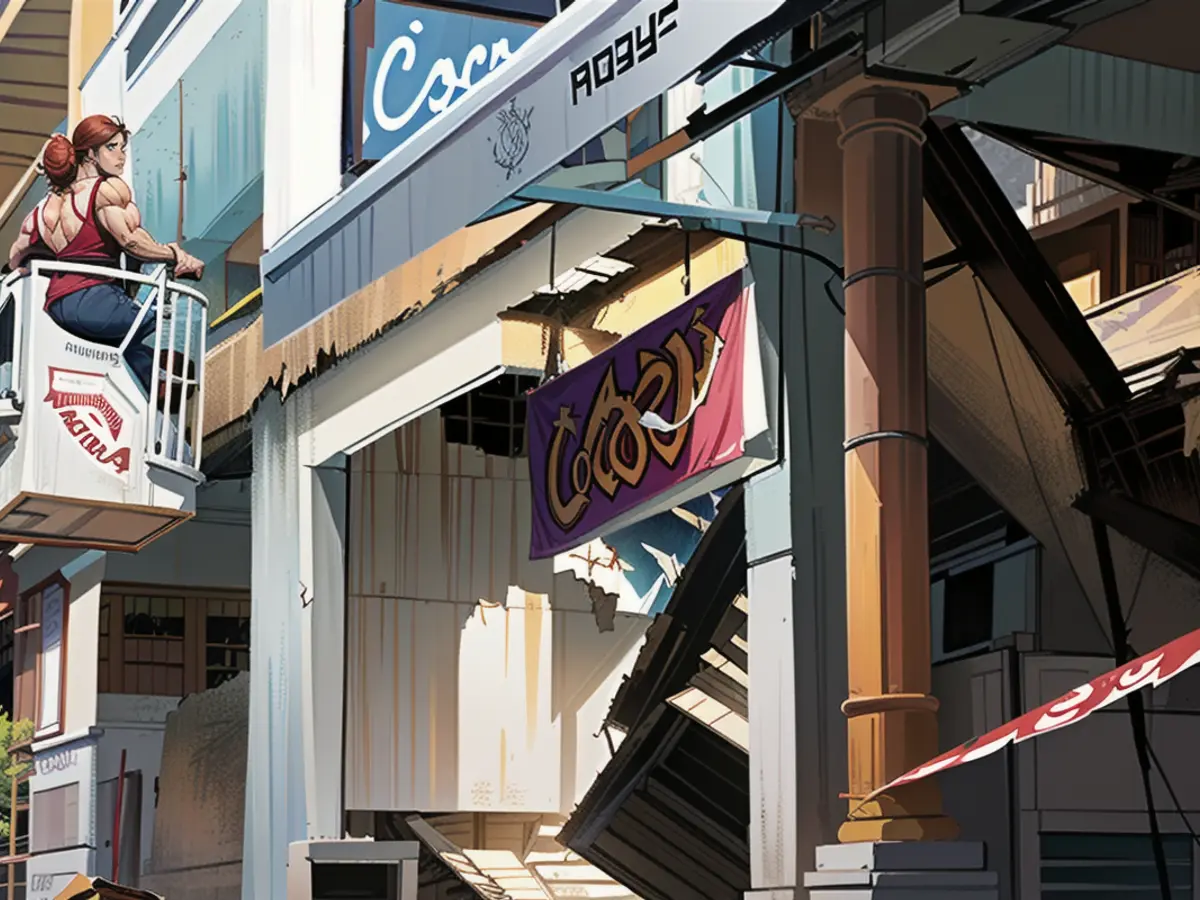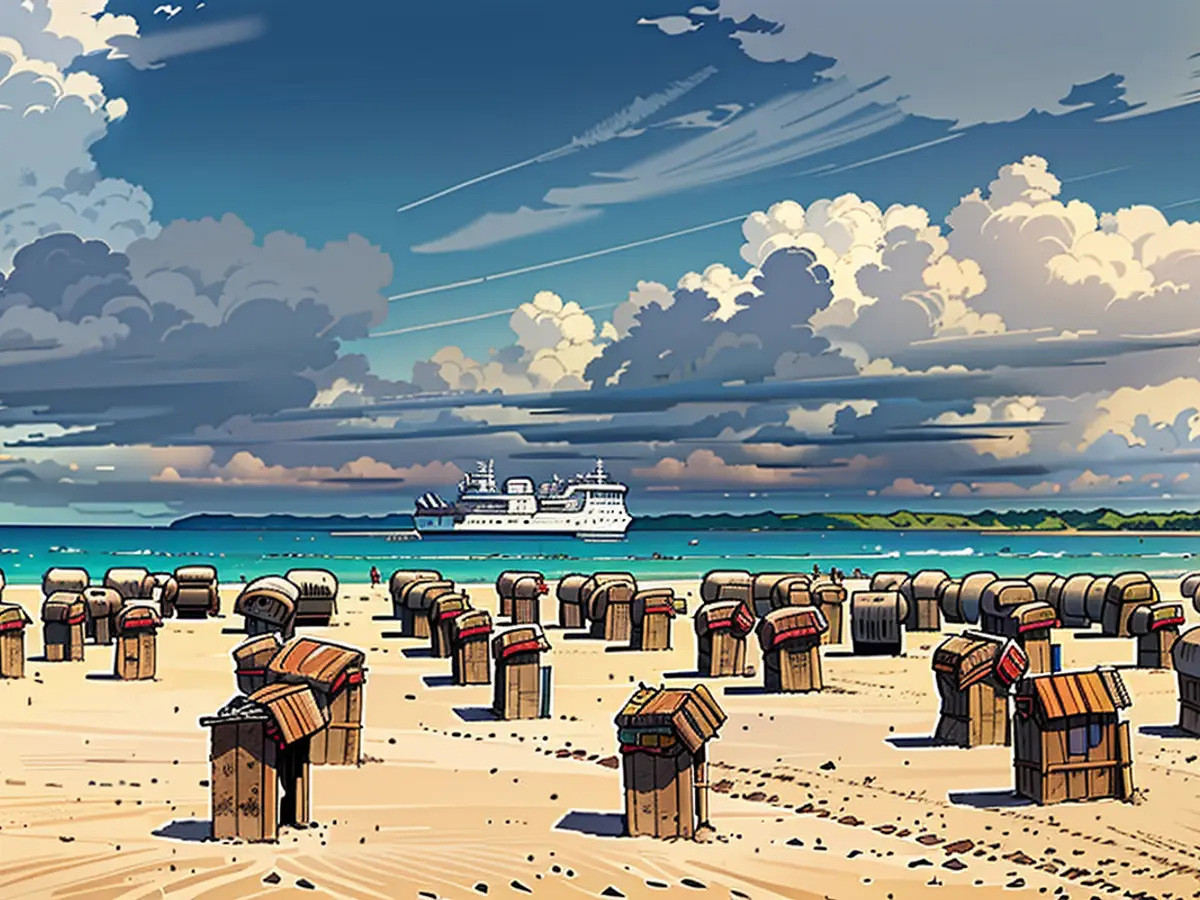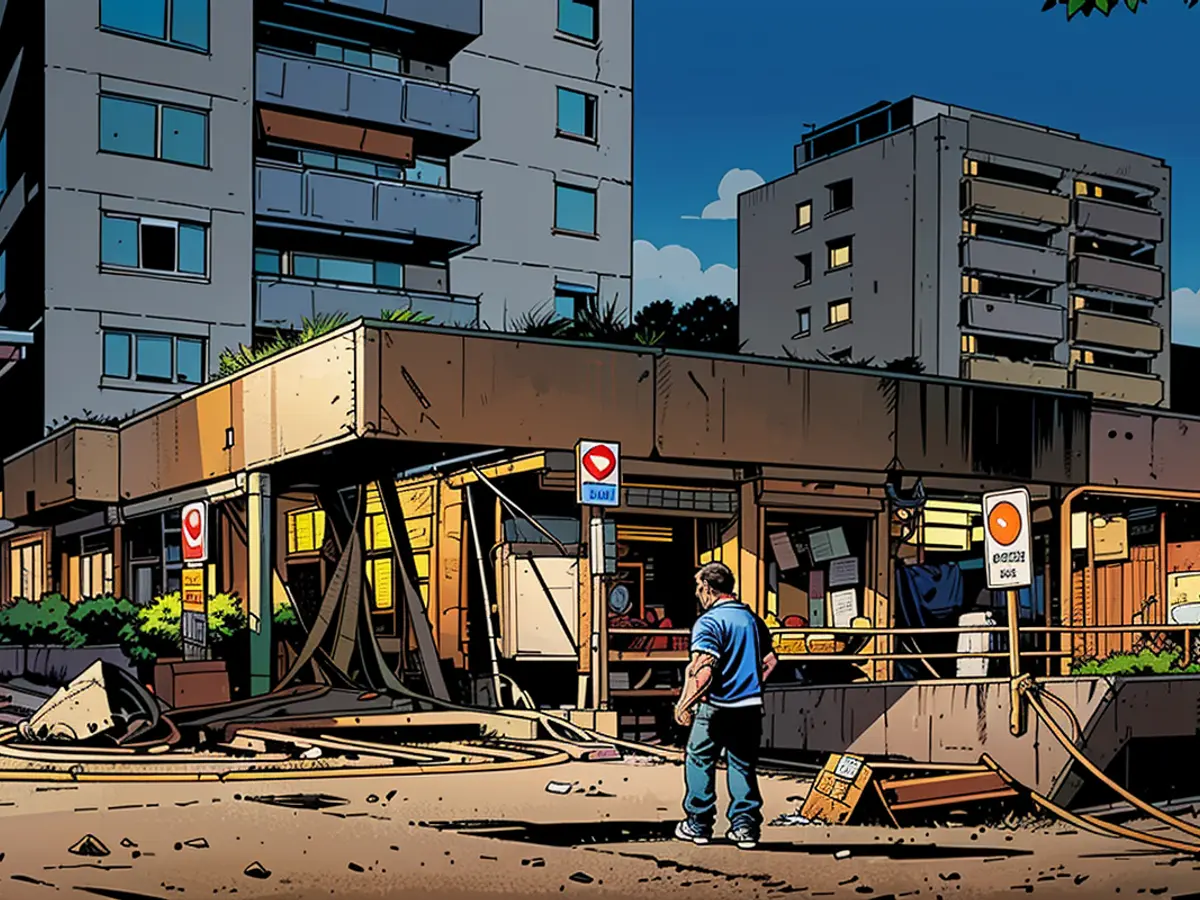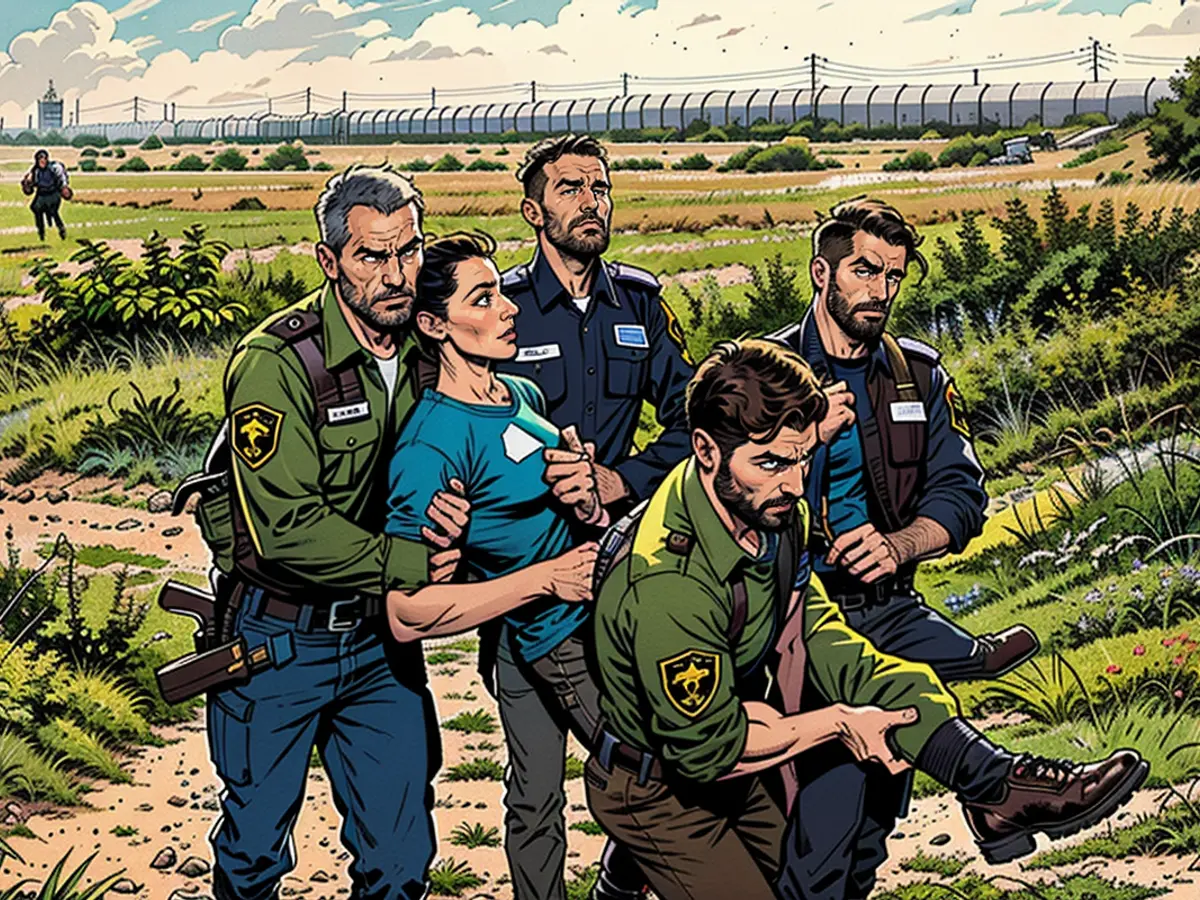Following the collapse of a structure - Mass demonstrations against widespread tourism in Mallorca.
"Go home, tourists!" citizens yelled out repeatedly as they walked by terraces filled with international visitors in Palma. A massive protest against mass tourism took place in Mallorca.
Police estimated that around 10,000 people participated in the demonstrations, shouting slogans like "Enough is enough!" and "Mallorca is not for sale!" though organizers claimed there were 25,000 attendees. Everyone agreed that it was a "historic" event, with regional newspapers "Diario de Mallorca" and "Última Hora" stating it was one of the largest protests ever on the island.
The protesters, including many families with children, schoolchildren, students, and pensioners, chanted slogans like "Who loves Mallorca won't destroy it" as they marched down Palma's Passeig del Born promenade. Placards carried messages such as "If they deny us a roof, they deny us a future." Trade unions, environmental groups, and various citizen initiatives joined in the protest.
The newly formed organization "Banc de Temps de Sencelles" organized the protest. It contends that the increasing number of visitors and rental apartments is causing a severe housing shortage on Mallorca and destroying the Spanish Mediterranean island. At the end of the demonstration, the group's spokespeople urged the authorities to declare a housing emergency.
First-hand testimonials from locals like Alba Martínez, a single mother of two, underline the growing discontent. She told "Diario de Mallorca," "I'm facing eviction from my home. Forget about prices, we have to act." The protesters chanted, "Wherever you look, it's just foreigners here."
Tourism is essential for the island's survival, with the industry contributing 45% of Mallorca's economic output. However, like protests in other popular tourist destinations in Spain - such as the Canary Islands in April - critics claim that only a select few profit, while the majority endure low-paid jobs in the booming sector, housing shortages, traffic congestion, noise, and pollution.
The protesters' message echoed a recurring theme: "Tourism is essential for our survival - yet only few reap the benefits." A symbolic representation by the protesters highlighted the sentiment: a wealthy tourist sneered her way past café tables while dragging a "local slave" behind her.
The Balearic Islands have a population of about one million and a half. The number of visitors last year hit nearly 18 million, with over 14.4 million coming from abroad. This is a ten percent increase from 2022 and double the number recorded two decades ago. Now, few dispute the need to curb tourist numbers.
Even real estate agents, who benefit from rising house prices, expressed solidarity with the protesters. The escalating pressures of tourism are "unsustainable," and housing is "inaccessible," according to the association Abini.
Politicians acknowledge the mounting frustration. A week before the protest, the conservative regional president, Marga Prohens, who's been in office for a year, pledged measures. "The model has reached its limit," she said. "Success in tourism doesn't lead to prosperity for the citizens."
Despair is particularly evident at Ballermann, the German party stronghold. It's not just residents who are disgruntled. The president of the Playa hoteliers, Pedro Marín, didn't celebrate despite a super-occupied 97% rate the previous year. Marín lamented that 2022 was "one of the worst seasons ever" due to "excessive tourism, crime, and drunkenness."
The rally followed the restaurant collapse at Ballermann where four people lost their lives, including two German women. Suspected construction defects and overloading might be the cause.
Residents maintain that many structures in the area fail to meet the requirements for mass tourism, and complain there's a lack of government oversight. Carmen Nogueira, president of the neighboring association AAVV Playa de Palma, noted, "If the accident had happened at midnight, there would have been 200 deaths."
Read also:
- Floods: water levels remain critical in many places
- Snow chaos further restricts Bavaria
- Continuous operation in the flood areas
- Flood situation remains tense in many places
Source: www.stern.de








